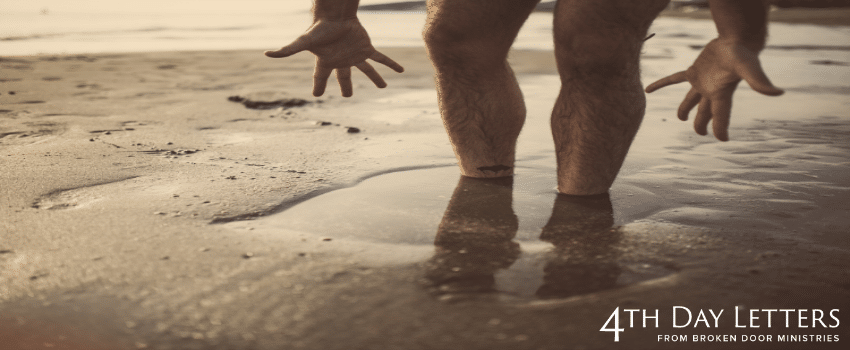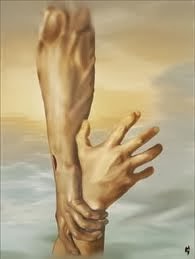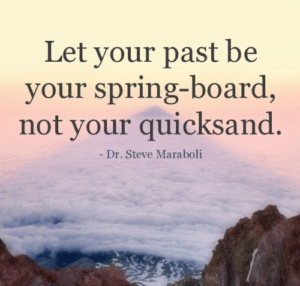
Quicksand
Have you ever watched one of those old movies where some character falls into a quicksand pit and sinks to their death? Contrary to myth and legend, a human is not likely to sink to the point of death in quicksand. There is however an important spiritual lesson that we can learn from Hollywood’s fictional depiction. Have you ever been mired in sin and felt like you were stuck in quicksand? Would you like to know how to extricate yourself?
 Quicksand is loose wet sand that yields easily to pressure and sucks in anything resting on or falling into it. It creates a bad or dangerous situation from which it is hard to escape. Similarly, sin sucks in those falling into it and creates a bad or dangerous situation from which it is hard to escape.
Quicksand is loose wet sand that yields easily to pressure and sucks in anything resting on or falling into it. It creates a bad or dangerous situation from which it is hard to escape. Similarly, sin sucks in those falling into it and creates a bad or dangerous situation from which it is hard to escape.
Once someone has fallen into quicksand, their continued or panicked movement may cause them to sink deeper, making their situation more precarious. A person rarely sinks more than waist deep, however as they sink the sand increasingly impairs their movement and this then, can lead to a situation where other factors such as weather exposure, dehydration, hypothermia, tides or carnivores may harm the trapped person.
Now juxtaposition the information about quicksand above to what Catholic author and speaker, Dr. Scott Hahn states about sin: “We have an obligation, first, to resist temptation. If we fail then we sin, we have an obligation to repent immediately. If we do not repent, then God lets us have our way: he allows us to experience the natural consequences of our sin, the elicit pleasures. If we still fail to repent—through self-denial and ask of penance– God allows us to continue in sin, thereby forming a habit, a vice, that will darken our intellect and weaken our will.”
By God’s design our brains like to form habits. Habits make our brain more efficient. If a habit is formed our brain no longer has to “think” about doing something it just does it habitually. Habits therefore are usually good. We all should strive to form good habits for things like eating, exercise, hygiene, study, work, etc. The problem comes from the fact that our brains also develop bad habits. As stated by Dr. Hahn, our sins are habit forming. Breaking free from our sinful habits is like trying to extricate ourselves from quicksand. Now here is an important point, a person might get stuck in quicksand but it almost always requires the assistance of someone else to get them out. Likewise we can get ourselves ensnared in sin but it almost always requires the help our other Christians to help us find freedom.
 Now think about this, if you were stuck in quicksand and you cried out to God for help, is it likely that you will miraculously just pop out? Is it possible? Sure all things are possible with God, but that is not the normal way God works. What is far more likely to happen is that God will send someone to your rescue.
Now think about this, if you were stuck in quicksand and you cried out to God for help, is it likely that you will miraculously just pop out? Is it possible? Sure all things are possible with God, but that is not the normal way God works. What is far more likely to happen is that God will send someone to your rescue.
Being mired in sin is much the same as being mired in quicksand. When it comes to sin we often believe that if we just pray, God will miraculously take our sin from us. Again is this possible? Sure all things are possible with God. Is this the way God normally works? No, God intends for us to be communal people and He usually works through others to answer our prayers.
Remember what I said above, if we are in stuck in quicksand and we try to save ourselves and we try to wiggle our way out, we only sink further and further into the muck. Because of pride and embarrassment when it comes to sin, we find ourselves in the same predicament. We would prefer to free ourselves from our sinful habits. When that fails, we turn to God in a quiet conversation that no one else is privy to, and we ask Him to “fix us” and save us from our sin. But much like the one who is hoping that God will just pop him out of the quicksand, we remain stuck in our sinful habit even after our prayer.
So what can we do? Galatians 6:2 gives us a clue when it tells us that we should “Bear one another’s burdens.” This passage helps us see that Christian community is essential.
 Sin gains power over us when we give in to temptation. If we continue to sin, we sink further into the quicksand and its hold on us grows stronger. With each and every subsequent sin our habit is reinforced. So how do we get free? How do we get pulled from the muck? Our biggest problem is we don’t want to admit that we have a problem. We don’t want others to see our shortcomings.
Sin gains power over us when we give in to temptation. If we continue to sin, we sink further into the quicksand and its hold on us grows stronger. With each and every subsequent sin our habit is reinforced. So how do we get free? How do we get pulled from the muck? Our biggest problem is we don’t want to admit that we have a problem. We don’t want others to see our shortcomings.
After praying to God our recovery starts when we reach our hand out, so that someone can pull us to safety. We must humble ourselves, push our ego aside and overcome our pride. It takes true Christian courage to be completely honest and expose our flaws and weaknesses to another trusted Christian. To break a sinful habit takes time but the clock often doesn’t begin to tick until we admit to someone that we have a problem and ask for help.
It is foolish to think we could get out of quicksand on our own and it is equally foolish to think we can overcomes sin’s hold on us without others who God sends our way to help us. No matter what sinful habits you have, I encourage you to reach out your hand today and ask for help.
 Dear Heavenly Father, please grant me the courage to acknowledge my brokenness to others and seek their help and support so that through honest Christian community I might draw closer to you. I ask this in the name of Jesus my savior, amen.
Dear Heavenly Father, please grant me the courage to acknowledge my brokenness to others and seek their help and support so that through honest Christian community I might draw closer to you. I ask this in the name of Jesus my savior, amen.
- What Is The Church’s Role In Society? - July 21, 2024
- The Thorn Remained - July 14, 2024
- The Confounding Nature Of Freedom - July 7, 2024

Brian,
Your post today also reminds me of the importance of the Sacrament of Reconciliation and the need to see the priest not as a judge but rather as a representative of both Christ and the community who is there to be supportive, forgiving and helpful in finding a penance that will help you to replace the quicksand of sin with firmer footing that will put you on the right path. I have to say that it took me a long time to really understand that penance is not for God, but for us, and not intended to make up for past brokenness but rather to replace the broken habits with actions that are more positive. Thanks.
Jim:
I agree with your comment on how you perceive the Sacrament of Reconciliation. I personally love this Sacrament and choose to go as often as possible. The one cautionary note I would add for Catholics who read this blog is this. We can get walled in by the shame of our sins. Usually no one knows these sins but us. We can and should tell our confessor. But our confessor is sworn to secrecy and in a way our secret is still secret even after telling the priest. This is why so many people get caught in the cycle of confessing the same thing over and over and over again. The real change often only comes when in addition to confessing to the priest, you also tell one or a couple of close friends about your broken condition and struggle. This takes real courage. This is where true Christian community comes into play. Telling a friend requires total humility and thus breaks down our pride and at the same time it breaks down that wall of shame. From those who I have talked to at my retreats this is where the real conversion away from old habits takes place.
So whether Catholic or Protestant, we who have habitual sin should confide that sin to a trusted Christian friend who can become an accountability partner and help us to break those old habits.
Brian
Thanks for holding my hand & pulling at the right moments
Your welcome!
God bless.